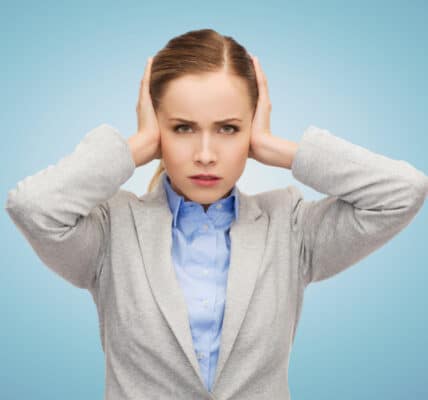Anxiety and Addiction

What drives people to engage in substance abuse? The answer is complicated, and it’s not the same for every person. The initiation of substance use is often due to peer pressure and curiosity. However, most people find substance use unpleasant upon first contact: smoking cigarettes, drinking alcohol, and consuming THC gummies are harsh and disorienting upon first use.
One thing nicotine, alcohol, and THC have in common is a depressive effect on the nervous system. They have the ability to calm things down. They lower the heart rate, reduce the respiration rate, and reduce blood pressure. Why do people need to calm down so much that they turn to substances that are otherwise unpleasant?
Why do people need to calm down? Because they feel stressed. Stress is the tension between the present situation and the preferred situation. “Being late” is a common tension that drives action. Being stuck in traffic, looking for employment, trying to survive in a war zone — these are all examples of stressful situations where the present must be endured in hopes for a better future.
Stress can be immediately physically documented. The heart rate and respiration rate increase immediately. Blood flow is reduced and the muscles tense. Alerts start pinging throughout the hippocampus, amygdala, hypothalamus, and thalamus. Neurotransmitters begin relaying signals, and up from the kidneys comes adrenaline, “the hormone of fear.”
Stress brings a biological “fight or flight” response — a need to evade the danger and restore homeostasis. The stress is an irritant, begging to be resolved. When it cannot be resolved, when there is no way to avoid the stressful situation, it results in displacement, where the stressful energy is channeled into seemingly meaningless activity to reduce the tension.
In animal studies, the unrelenting presence of stress leads animals to pace, groom excessively, and engage in other repetitive behaviors. In human studies, stress also leads to excessive grooming, scratching, itching, swaying, hairplay, and other repetitive activities. This same stress also leads to overeating, smoking cigarettes, drinking alcohol, consuming THC, and other substances of abuse.
In a fascinating nuance of linguistics, stress is considered the biological response to an imminent threat, whereas anxiety is considered to be the anticipation of stress. Anxiety is caused by awareness of a “potentially harmful situation,” according to a study on the neurobiological links between stress and anxiety. Scientists further divide anxiety into state anxiety, which is “an acute response to a potential threat,” and trait anxiety, which is a state of chronic anxiety.
Trait anxiety “increases the probability of state anxiety in potentially dangerous situations,” the international team of researchers writes. There is an important evolutionary reason for people to respond quickly to threats, and to correctly anticipate threats. However, the sense that danger is around every corner, such as persons with post-traumatic stress disorder (PTSD) experience, can cause an exhausting and debilitating overreaction to stress.
Stress, then, leads to the anticipation of stress, which is anxiety, which can lead to such physical manifestations as the following, courtesy of AnxietyCareUK:
- panic attacks
- fast pulse
- palpitations
- shallow breathing
- shortness of breath
- chest pain/tightness
- sweating
- choking
- headaches
- insomnia
- irritability
- muscle twitches
- trembling
- feeling faint
- tingling in hands/arms/legs
- problems with speech
- fear of dying
Anxiety tends to layer up over time. If a school teacher experiences a panic attack when speaking in front of a classroom of students, he or she will then have anxiety about having a panic attack layered on top of the anxiety of public speaking. Similarly, drugs such as nicotine, THC, and alcohol can initially depress anxious responses, but when they become habit-forming, they cause anxiety during the times of non-use.
So far, we’ve shown how repeated stress leads to anxiety, a measure of one’s expectation of stress. Now, let’s look at how anxiety leads to substance use disorder.
In a massive study of 9,282 adults, “anxiety disorders were associated with increased odds for substance use disorders.” Another study looked back at people being treated for substance use disorder to determine the prevalence of anxiety disorders and depression. Not surprisingly, they found an association between high levels of anxiety and substance use disorder. More importantly, they discovered that the more severe the anxiety or depression, the higher the likelihood of addiction.
Indeed, yet another study found that anxiety sensitivity is correlated with initial substance use, so that the greater the sensitivity to anxiety, the greater the likelihood of early substance use. Furthermore, an increased sensitivity to anxiety results in an increase in harmful play fighting in children, which is associated with “abnormal aggressive behaviors later in adulthood.”
The answers to the riddle of substance abuse can be traced to an excessively fearful biological response to anticipated stress. Displacement of that anxiety can lead to repetitive and compulsive behaviors such as eating addiction, alcohol addiction, drug addiction, and even excessive gambling or excessive exercising. The solutions for dealing with excessive anxiety will be the subject of a forthcoming post on AddictionNews.
Written by Steve O’Keefe. First published September 2, 2025.
Sources:
“Assessment of anxiety and depression among substance use disorder patients: a case-control study,” Middle East Current Psychology, June 3, 2020.
“The Science of Anxiety (Infographic),” Northwestern Medicine, June 2020.
“Neurobiological links between stress and anxiety,” Neurobiological Stress, August 13, 2019.
“The Biological Effects and Consequences of Anxiety,” AnxietyCareUK, retrieved August 25, 2025.
“Anxiety disorders moderate the association between externalizing problems and substance use disorders: Data from the National Comorbidity Survey-Revised,” Journal of Anxiety Disorders, May 2009.
“Anxiety sensitivity as a moderator of the relationship between trait anxiety and illicit substance use,” APA PsychNet, December 2014.
Image Copyright: lightpoet.




